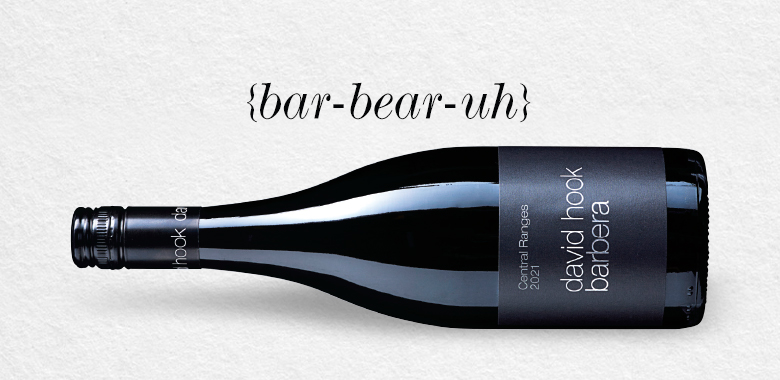
Wine
What is Barbera?
Known for its good colour, high acidity and soft tannins, Barbera is Italy’s third most planted grape and comes from the Piedmont region. It produces good quality wines that offer an affordable, early drinking alternative to Piedmont’s Nebbiolo wines.
Shop Barbera
An infographic guide to Barbera wine
Originally from the Piedmont region in Italy, Barbera wine arrived in Australia in the 60's.
Barbera can be cellared for up to ten years.
Barbera is medium to full-bodied in profile with medium, well-rounded tannins.
Did you know Barbera grows in more places than it's Piedmont siblings, Nebbiolo and Dolcetta.
Barbera Wine in Australia
The Barbera grape normally prefers a cooler climate like the Adelaide Hills, King Valley, Alpine Valley, Orange and Hilltops, where it produces richer, more complex wines. However, due to its high natural acidity, it also thrives in moderate and warmer regions including the Hunter Valley, McLaren Vale, Mudgee, and Gundagai. If yields aren’t kept in check, Barbera can overcrop in warmer regions and produce thin wines. For that reason, in the warmer regions, yields are kept low.
A few Hunter Valley wineries have a real passion for Barbera including Margan Wines, David Hook Wines and Tulloch Wines. Tulloch Wines source their fruit from Hilltops and Young, while Margan and David Hook both have plantings of their own in the Hunter. David Hook also uses fruit from the Central Ranges.
Andrew Margan, Margan Wines’ owner and winemaker, planted Barbera in his Broke Fordwich vineyard in the Hunter Valley in 1988. “I was the first to plant Barbera in the Hunter,” he explains. “I took cuttings from the original Montrose vineyard in Mudgee that was planted by Carlo Corino from cuttings he bought from Italy in his suitcase. That original vineyard in Mudgee has since been grubbed out.”
“Barbera is a medium-bodied wine with great acidity. At full ripeness it still has wonderful acid that provides a style of wine rarely seen in Australia,” he says.
David Hook is also a big Barbera fan and has taken several trips to Piedmont in Italy to research it. “For every day drinking, most people in the region turn to the more accessible Barbera wines,” he says. “Among their many virtues, these wines are great with food. With their bracing acidity, they’re a brilliant accompaniment, refreshing the palate and stimulating the appetite.”
A solid traveller, Barbera grows well in many more places than its Piedmont siblings, Nebbiola and Dolcetta.
Characters of Barbera Wine
Barbera is known for its medium bodied nature, black fruit flavours and a high acidity that makes it appear juicy. It’s the perfect red wine for the Australian summer as it is soft and approachable with an abundance of mid-weight fruit flavours such as cherries, plums, anise, spice and liquorice on the palate to pepper, plums, cherries, smoke and violets on the nose.
Food Pairing with Barbera Wine
With good natural acids and soft tannins, Barbera is perfect for the wide range of Mediterranean-style foods that are rich or high in fat. It’s an absolute crowd-pleaser served with dishes like pizza, mushroom and thyme pasta, spaghetti Bolognese, sausage, broccoli and walnut pesto pasta, antipasto selections and slow cooked tomato ragu with rigatoni.
“Barbera is a versatile partner with food. It is great with pizza, but also with all manner of meat sauces and grilled meats. If you are throwing a steak or sausages onto the grill, get out the Barbera!” says David Hook.